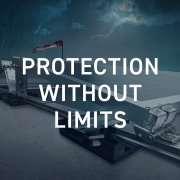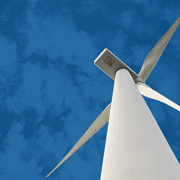- Switzerland, Sweden and Denmark have succeeded in recovering over 98% of their municipal waste on average over the last five years
- Germany are now recycling half of their waste (50%), having improved year-on-year for the last five years
- Despite a 12% reduction over the last five years, Turkey are still sending a shocking 88% of waste to landfills
- When you take both waste production and waste recovery into account, Japan, Belgium and Sweden are leading the way in the overall war on waste.
Our waste production is increasing throughout the globe due to growing populations and economies. With predictions that this will grow a further 70% as soon as 2050, our need to act is at an all time high. The question, of course, is whether countries across the world are indeed taking action and doing their part to both minimise waste and maximise its recovery.
Packaging retailers RAJA have drawn on data presented from the OECD on the treatment of countries’ municipal waste, delving into 29 countries that had data available over five years. Through doing so, they were able to not only find out which countries are making positive movements in waste recovery, but also which ones are minimising their waste (per capita). Even more importantly, which countries are making conscious efforts with both – and what can we learn from these nations?
Some key findings of the data are documented below. Please note, any countries with a * had data up to 2017, rather than 2018:
6 of the 29 countries have recovered an average of 95% of municipal waste over the last five years:
- Switzerland (100%)
- Sweden (99%)
- Denmark (98%)
- Belgium (98%)
- Netherlands (98%)
- Austria (97%)
Waste recovery within municipal waste includes recycling, composting, and incineration with energy. The OECD warns against comparing countries with each other due to varying methods of surveying municipal waste, but looking at each country’s individual statistics – we can see strong rates of recovery.
Looking at an average of the last five years, Switzerland are leading the way in waste recovery with a recovery rate of 100%. However, this is not necessarily as straightforward as it may seem. With 718 kilos of waste per capita, they are still producing more waste than all countries examined, excluding Netherlands (811), Denmark (780) and the USA* (738). As well as this, recycling and composting are generally seen as ‘better’ ways of recovering waste, yet almost half (47%) of Switzerland’s recovery over five years is through incineration with energy.
Germany are improving year-on-year with recycling rates averaging at 49%, while Lithuania have tripled their composting rates over the last five years
- Those with high rates of recycling over five years were: Germany (49%), Slovenia (47%) and Belgium (34%)
- Slovenia have seen increasing recycling rates over the last five years, by an impressive 24 percentage points
Germany’s upward trajectory is in thanks to the many initiatives they have implemented in the country. The success of their recycling relies on strong government policies, as well as citizens that equally embrace this lifestyle. The Green Dot system is just one of these, where manufacturers and retailers pay for a green sticker on products, showing that a fee has been paid to fund its recycling. They also use several different bins to enhance recycling efficiency, including black for general waste, blue for paper, yellow for plastic, white for clear glass, green for coloured glass and brown for composting.
- Those with high rates of composting over five years were: Austria (32%), Netherlands (28%), Switzerland (21%), Italy (21%) and Luxembourg (20%)
- Lithuania has seen the biggest improvement over five years however, more than tripling their composting rates.
Lithuania are standing out in the composting game due to drastic improvements, which has resulted in a 32-percentage-point reduction in landfill (from 60 to 27%), almost double the other countries’ reduction efforts. One reason for this is due to their regional waste management centers. The centers provide households with free composting boxes, as well as teach homeowners how to separate food and kitchen waste suitably, making sure composting is engrained in day to day life.
Turkey is still sending an average of 93% of waste to landfill, despite a reduction of 12% over the last five years.
With landfill considered the worst form of waste disposal, it’s important that countries shift away from it – and quickly. The good news is that 23 of the 29 countries we looked at have reduced landfill over five years, although the improvements aren’t big enough for most. In fact, only ten countries have improved it by more than 5%.
- Top reductions in landfill have came from Lithuania, Poland, Finland, the UK and Slovakia with 32, 17, 17, 13 and 13 percentage point decreases
- Looking at the last five years, Turkey (93%), Greece* (83%) and Latvia (69%) are still sending high volumes of waste to landfill on average
- Estonia’s landfill usage has increased by 16 percentage points over the last five years
Studies show however, that while it’s now illegal in the UK to send non-recoverable materials to other countries, there are still glitches in this system around the globe. Many wealthier countries tend to send ‘recyclable’ waste overseas, yet receiving countries report this waste as unrecyclable. This causes the landfill statistics in receiving countries to soar while the wealthier countries are able to keep theirs low.
When waste minimisation and waste recovery are both taken into account, Japan stands out as superior
Our world keeps growing and waste recovery needs to become a wider part of life. In the meantime, we are all living in excess. While waste recovery is important, producing less in the first place is even better. When we consider waste per capita we can see the following:
- The Netherlands, Denmark and the USA* stand out as producing significant amounts of waste per capita
- Poland, the Czech Republic and Japan are succeeding in generating low amounts of waste
- And, crucially, only six of the 29 countries have achieved waste reduction – Hungary, Belgium, the UK, Netherlands, Germany and Switzerland
When looking at a combination of waste minimisation and recovery however, one country stood out the most. Japan’s motto is ‘Mottainai’, which translates to “don’t waste anything worthy”. It’s clear that they’re working to follow all three R’s of reduce, reuse and recycle, as their numbers show they have both low waste production, and recovery rates of 93%. Next best was Belgium, and then Sweden. Belgium have strong performance in both areas, while Sweden are able to keep 99% of its waste out of landfill (yet produce slightly more waste than these two countries).
For the full table of data collected from the OECD and analysed by RAJA, please view our ‘Waste minimisation’ research.





















